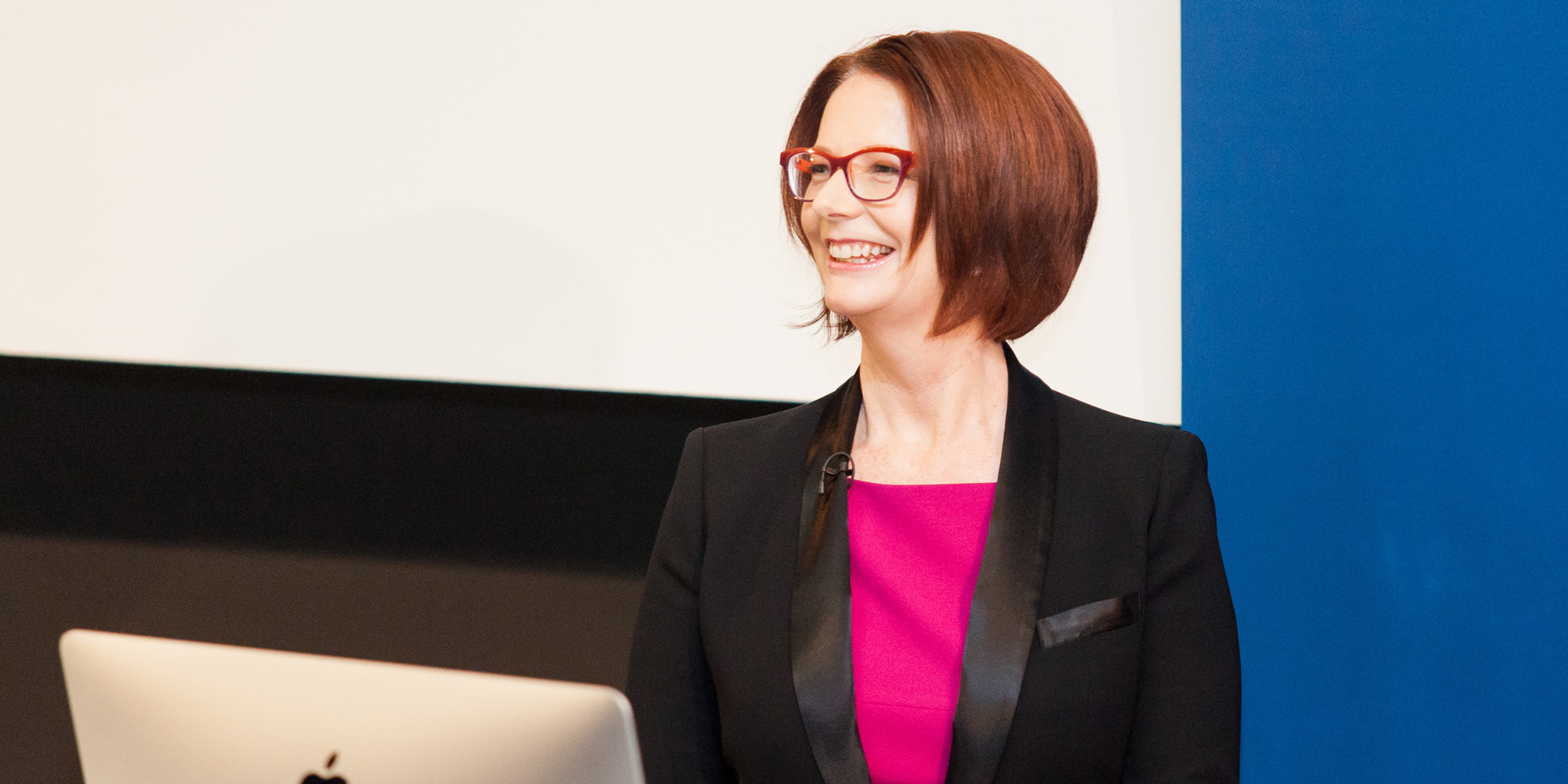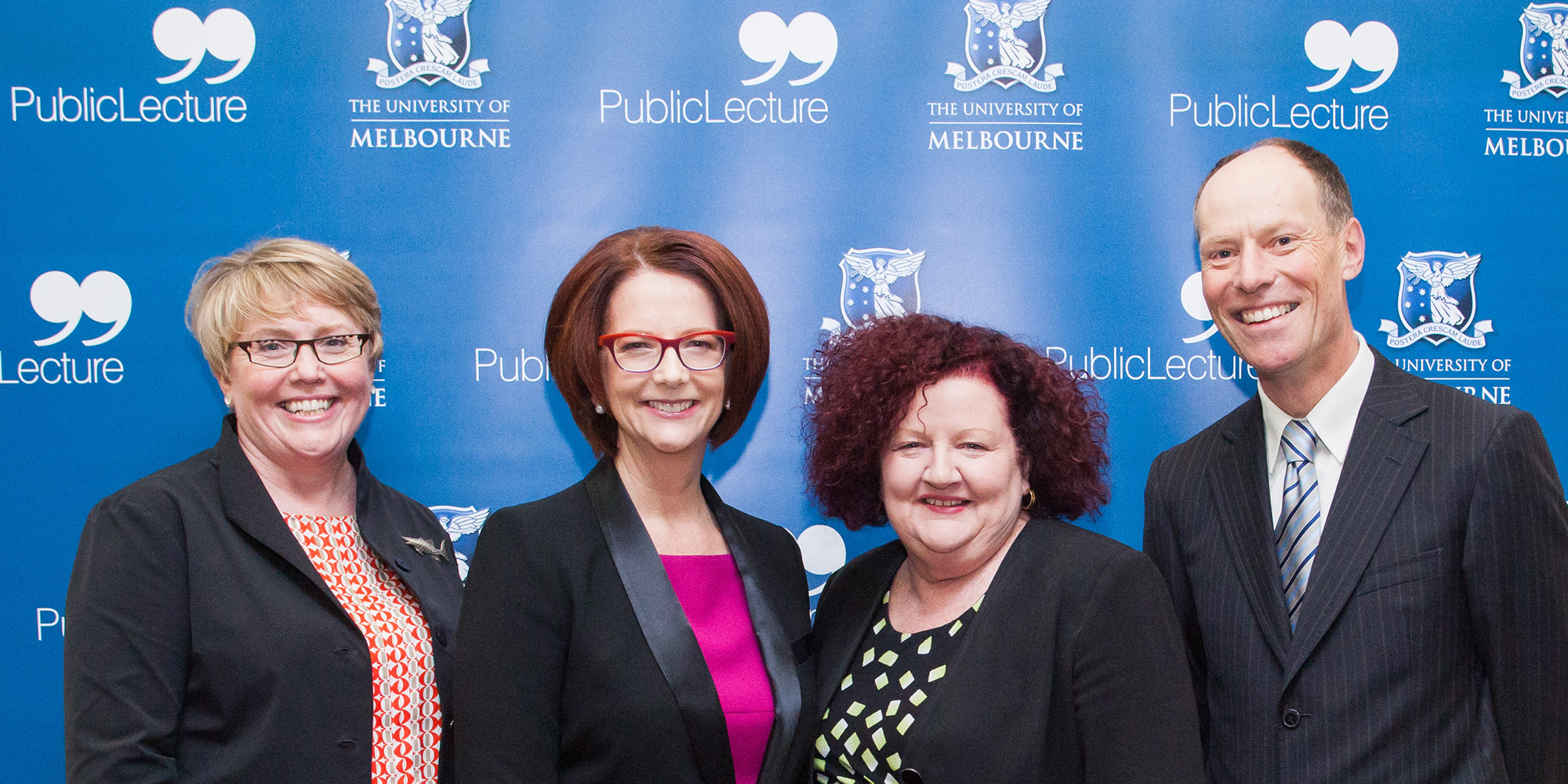Women’s human potential is being tapped on the cheap, or in the developing world simply denied as they come second in the fight for education.
As International Women’s Day rolled around again this year, the debate about the gender pay gap and equality in the workplace got plenty of attention. Old debates were rehashed and commentators set out strategies to deal with this seemingly intractable issue.
In November last year, Australia’s first female prime minister, Julia Gillard, a proud University of Melbourne alumna, presented the Foenander Lecture, an annual lecture series addressing issues in industrial relations and human resource management.

Gillard chose to focus on education and equality, shining a spotlight on educational opportunities for girls and employment equality. The two, of course, are inextricably linked and help us to articulate the puzzle of gender inequality.
Across the Faculty of Business and Economics, and in the University of Melbourne more broadly, researchers from anthropologists to economists have been investigating these topics for decades, building an evidence base, shaping public debates, informing public policy strategies, and guiding organisational practice.
The notion of human capital was centre stage in Gillard’s lecture, positioning the transformative power of education and gender equality as vital agendas for the 21st century.
In the developing world, where Gillard’s current work is concerned with the educational opportunities afforded to girls, a strong global narrative has emerged. Educating girls can help drive development through investment in human capital. And increasing education has a range of positive social and democratic effects.
Millions upon millions of young people do not have access to education – around 124 million who should be in primary and lower-secondary schooling, or 250 million if you factor in those with access to education that is of such poor quality that even basic literacy and numeracy benchmarks are not met. Of the 59 million young people not in primary school, around 31 million are girls.
Let those numbers sink in for a moment. If we placed all these young people together they would form the fifth-most-populous country in the world. What we also know is that it will take decades to address this issue and that girls will be the last to get access to educational opportunities.
The scale of the problem is breathtaking and requires global action.
As Gillard argued, “business as usual is … nowhere near good enough. This is a denial of human potential”.
In the developed world, the narrative is different. Having made massive human capital investments in girls and women, we have a situation where women get paid less than men in many countries, and the gender pay gap is widening.
Women’s human potential is being tapped, but on the cheap, and the barriers that women confront in the workplace have moved from predominantly structural, to cultural. Many have written on the power of unconscious bias – the prejudices we hold but may not even be aware we are enacting. The examples of unconscious bias drawn by Gillard in her lecture made many of us in the audience pause and reflect on our own actions. Consider the following scenarios.
- Imagine that girls and women outperform men in educational attainment but when they take their first job out of university women earn around 4 per cent less than men with the same qualification. This happens. And it amplifies throughout their working lives.
- Imagine that two people – one female, one male – apply for a job with exactly the same CV, but when they are assessed against the job the male is judged to be more qualified. This happens. Our perceptions of merit are not objective.
- Imagine that students take an online class taught by the same person, but in one they are told the teacher is female, and in another the teacher is male. Imagine that they deliver much harsher feedback and poorer performance ratings for the female teacher. This happens. Our ratings of others’ performance is not always objective.
- Imagine an experiment is run where the same scenario and facts are presented to a group. In one scenario the leader is male, and the other a female. Imagine that the female leader is reviewed as being less likeable (on the same facts) when she was more successful than the male. This happens. Our views on leadership are not gender-free.
Structural barriers to women’s participation in the labour market remain, however, many argue that these psychological and cultural factors are just as powerful in constraining women’s equality. Addressing them, however, requires different strategies – it is hard to legislate these problems away. Gillard’s advice squares with the leading research in this area – we need to analyse our own remaining prejudices, and call out sexism and other forms of discrimination.
The progress to date and the ongoing struggle for the pursuit of equality were important place marks in a powerful address.
Opening up education to young people, girls especially, is critical to ensuring a more just and equal world.
However, the current state of labour market outcomes also shows us that the fight for equality has a long way to go.

Janine O’Flynn is Professor of Public Management, School of Social and Political Sciences (Arts) and Melbourne School of Government. Janine holds a Bachelor of Commerce (Hons.) and a PhD from Business and Economics at the University of Melbourne.